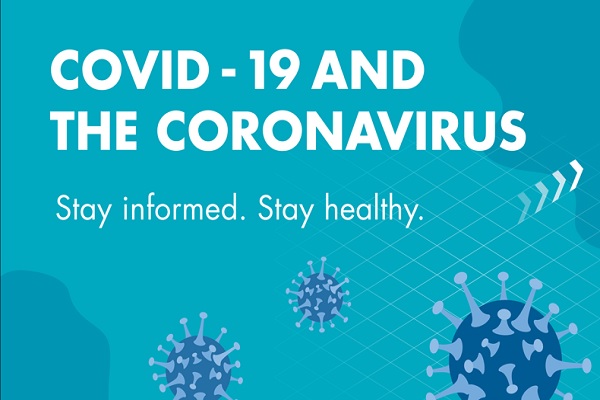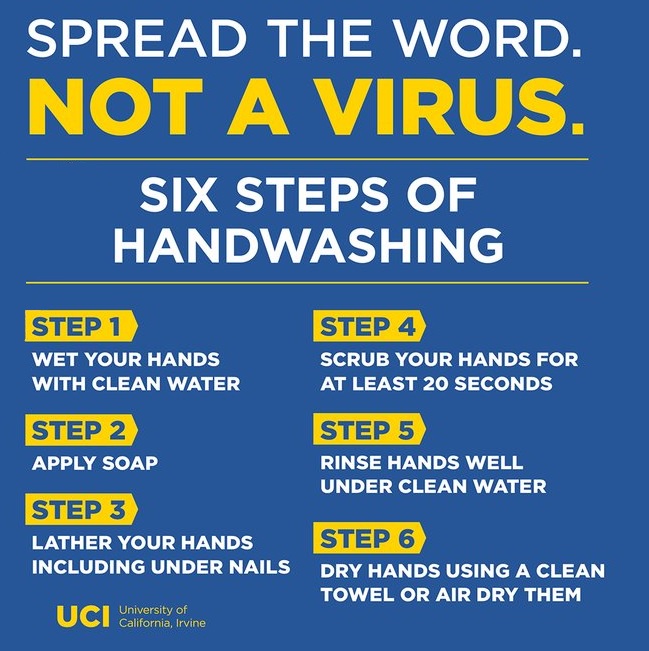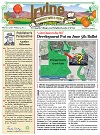 As a 78-year old resident in excellent health who has been reading the medical literature voraciously, I concluded weeks ago that the most effective way to stay safe from infection by the coronavirus that causes COVID-19 is certainly to stay at home. To be as safe as possible, you should carefully heed Governor Newsom’s statewide order to stay at home and assume that everyone outside your immediate household is infected with the virus, whether or not they appear sick or say they are sick. Also assume that objects brought into your home — or anything outside that you touched — potentially has the virus on its surfaces.
As a 78-year old resident in excellent health who has been reading the medical literature voraciously, I concluded weeks ago that the most effective way to stay safe from infection by the coronavirus that causes COVID-19 is certainly to stay at home. To be as safe as possible, you should carefully heed Governor Newsom’s statewide order to stay at home and assume that everyone outside your immediate household is infected with the virus, whether or not they appear sick or say they are sick. Also assume that objects brought into your home — or anything outside that you touched — potentially has the virus on its surfaces.
HOW DOES THE CORONAVIRUS INFECT YOU?
Mouth, Nose, Eyes. The virus enters your body through your mouth, nose or eyes. It can land there from little droplets that come from someone’s cough or sneeze, or even when they speak. So, staying the recommended 6 feet away from another person ensures that these larger droplets will fall to the ground before reaching you.
However, smaller particles with attached viruses that are also produced even from breathing can remain suspended in air for significant periods of time, allowing them to be transmitted over longer distances. So, avoid being in a confined space with anyone other than people in your household.
Contact with Surfaces or Objects. Touching surfaces or objects anywhere, even in your home, and then touching your mouth nose or eyes, is another mechanism that can result in transmission of coronavirus. This is something many of us do frequently without being aware. Remember, be aware of where your hands are, and try to avoid touching your mouth, nose or eyes. A mask prevents you from inadvertently touching your mouth or nose, but not your eyes. You will be immediately reminded when your finger hits the mask instead of your nose!
 The coronavirus can persist1 in fine respiratory droplets for up to three hours; on cardboard up to 24 hours; and on plastic and stainless steel up to two to three days. I can’t overstate the importance of frequent handwashing with soap and water for the recommended 20 seconds, especially whenever you enter your home. It’s the friction from rubbing as well as the soap that removes the virus-laden particles.
The coronavirus can persist1 in fine respiratory droplets for up to three hours; on cardboard up to 24 hours; and on plastic and stainless steel up to two to three days. I can’t overstate the importance of frequent handwashing with soap and water for the recommended 20 seconds, especially whenever you enter your home. It’s the friction from rubbing as well as the soap that removes the virus-laden particles.
It’s a good idea to periodically disinfect all countertops, phones, door and drawer handles, light switches, remote controls, faucet and toilet handles, keyboards and touch screens, and handles on appliances.
For best protection, do not let anyone outside your household enter your home. And don’t allow groceries or deliveries into your home without wiping them down with a simple disinfectant (alcohol or alcohol-based wipes or sprays containing at least 70% alcohol).
I know that some of these protective measures may sound unduly burdensome, but anything less imposes some degree of risk to you and others in your household. So, you have to decide how much effort you are going to put into staying safe.
HOW DO YOU KNOW IF YOU ARE INFECTED?
People do not necessarily know if they are infected with the new coronavirus. People who are infected, at first, show no symptoms. It takes from 1 to 14 days for COVID-19 symptoms to appear, and some people never show any symptoms. However—and this is a vitally important point—during this no-symptom period, infected people can be highly contagious.2
When the symptoms appear, they are most commonly fever, cough and shortness of breath. If you experience those symptoms, you should isolate yourself from everyone else and contact your physician who may help you get tested. The only way to know if you are infected with this new coronavirus is to be tested. That’s why we should be urging our governmental leaders to immediately begin organizing a comprehensive, nationwide testing program.
REFERENCES
1 New England Journal of Medicine, Correspondence, Aerosol and Surface Stability of SARS-CoV-2 as Compared with SARS-CoV-1, Doremalen, et al, National Institute of Allergy and Infectious Diseases, Hamilton, MT, 3/17/2020 (free) https://www.nejm.org/doi/full/10.1056/nejmc2004973
2 New England Journal of Medicine, Covid-19—Navigating the Uncharted, Fauci et al, 3/26/2020. (free)
https://www.nejm.org/doi/full/10.1056/NEJMe2002387
NEJM Journal Watch, Presymptomatic Transmission of SARS-CoV-2 (free) 4/7/2020
https://www.jwatch.org/na51294/2020/04/07/presymptomatic-transmission-sars-cov-2
- What is a Cello Madness Congress? - May 5, 2022
- Meet Irvine Resident & Young Filmmaker Ethan Chu - January 11, 2022
- Is the Long-Promised State Veterans Cemetery in Irvine Dead? ABSOLUTELY NOT! - August 8, 2021



